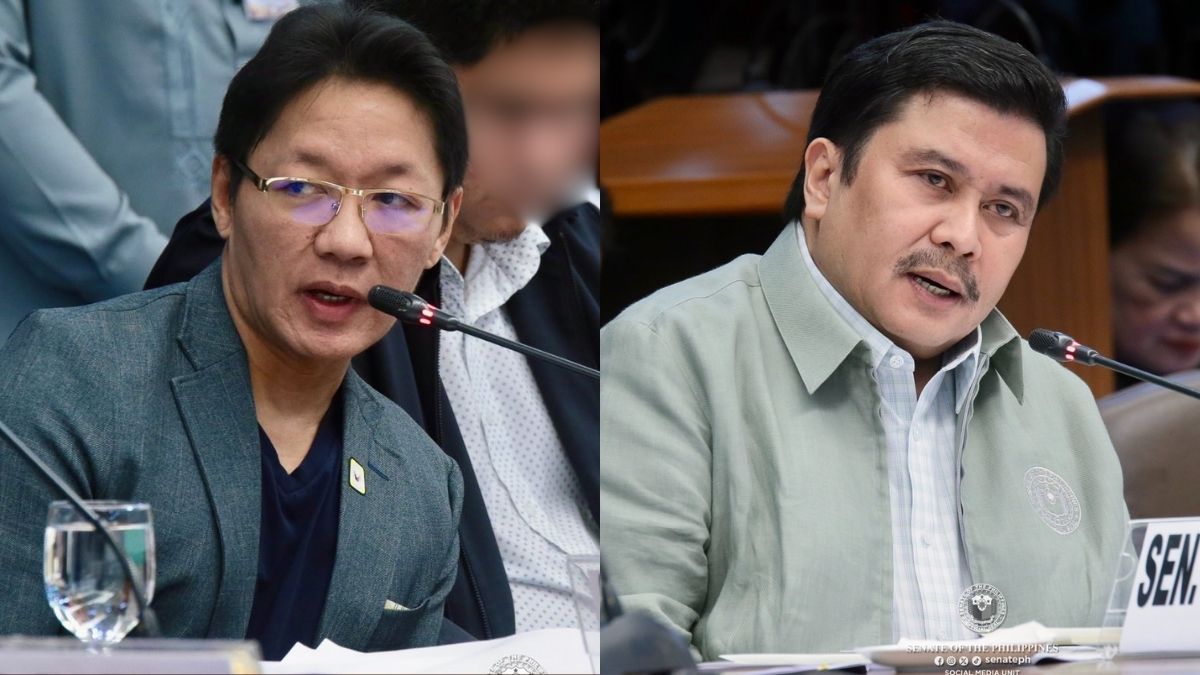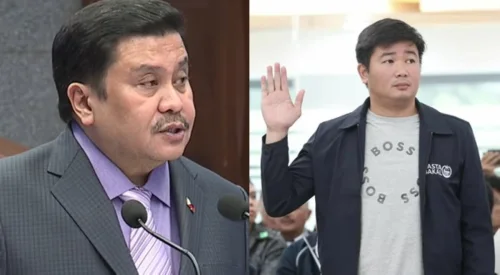A shocking investigation erupted in the Senate this week, reopening long-standing wounds of government corruption. Amid the heated debate, the names of the Tulfo Brothers surfaced in public, sparking shock and a stark question: how far does corruption extend among those in power?
What Happened to the DPWH and Flood Control Funds?

The Senate Blue Ribbon Committee has focused on anomalies in the Department of Public Works and Highways (DPWH), particularly flood control projects. According to the testimony of some former employees, there were irregularities in the awarding of contracts, where funds were allegedly used for the private interests of some officials and contractors. Some projects are considered “ghost projects” — there is funding, but no actual project has been implemented.
One of the most shocking statements came from Mina Jose , a representative of WJ Construction. She vehemently denied all the accusations against her and the company, saying that her visit to the Senate was only for an ocular inspection of the damaged terrace of Senator Erwin Tulfo’s office and to visit a friend from the Blue Ribbon Committee who was seriously ill. However, Bryce Hernandez, a former assistant district engineer, revealed that Jose allegedly served as the “conduit” for the so-called “obligation” or advance payment for the projects. This clearly suggests systematic bribery behind public projects.
Directly Involved: Tulfo Brothers in the Eyes of Investigation
Senator Erwin Tulfo did not escape the heated investigation . He strongly defended himself, saying he immediately canceled the contracts with WJ Construction upon learning of the name involved. He presented memoranda as evidence of his stance, and stressed that he did not use his office for illegal activities.
At the same time, Senators Jinggoy Estrada and Joel Villanueva were also faced with allegations. According to Hernandez, Estrada allegedly allocated P355 million and Villanueva P600 million for several projects. The senators vehemently denied the allegation, calling it baseless, and challenged the witness to prove his statements before the Senate.
Text Messages and Smuggled Vehicles: New Dimension of Controversy

The text messages presented by Hernandez added a new dimension to the investigation. According to him, the “delivery” mentioned by Mina Jose was not just documents but money. Jose strongly denied the insinuation, saying that only documents were being referred to.
Additionally, the issue of smuggled luxury vehicles surfaced , with Senator Raffy Tulfo linking witness Curly Discaya to owning vehicles without records with the Bureau of Customs. Discaya vehemently denied the allegations, saying that all were legally purchased from local dealers. The controversy over smuggled vehicles has given an indication of a wider network of corruption behind public projects.
“Rotten System” in Government
The entire testimony exposed a “rotten system” in the DPWH. According to the report, flagship projects are being deliberately downsized and transferred to convergence projects, which become havens for corruption. Lack of monitoring and quality control has paved the way for ghost projects and substandard projects to be implemented continuously.
A call for reform has resounded from the Senate. Senator Sherwin Gatchalian urged the DPWH to coordinate with the Philippine Competition Commission to initiate a “moto proprio investigation” and impose fines on contractors involved in bid-rigging and ghost projects. The Anti-Money Laundering Council (AMLC) is also ready to freeze the assets of those involved, as a serious step against corruption.
Accountability and Public Opinion
This is not just a matter of identifying the culprit. The investigation is a fight for public trust. While each side has its own defense, Filipinos continue to wait for clarity and justice. These events show that with power comes great responsibility. The trust of the people must not be abused, and every action of an official is monitored by the entire nation.
Ultimately, it is clear that the situation of the Tulfo Brothers and other officials is symbolic of a deeper problem in government: the need for transparency, integrity, and true accountability. The public is watching, waiting for justice, and hoping that the government will be willing to defend the interests of the people rather than personal gain. The Senate, as the guardian of the law, has a duty to ensure that no one in office escapes accountability.
The controversy opened the door for deeper government reform, and demonstrated that every Filipino, from ordinary citizens to senators, has an obligation to hold the corrupt accountable. The future of the country depends not only on the law, but on the courage of every Filipino to stand up against corruption.
